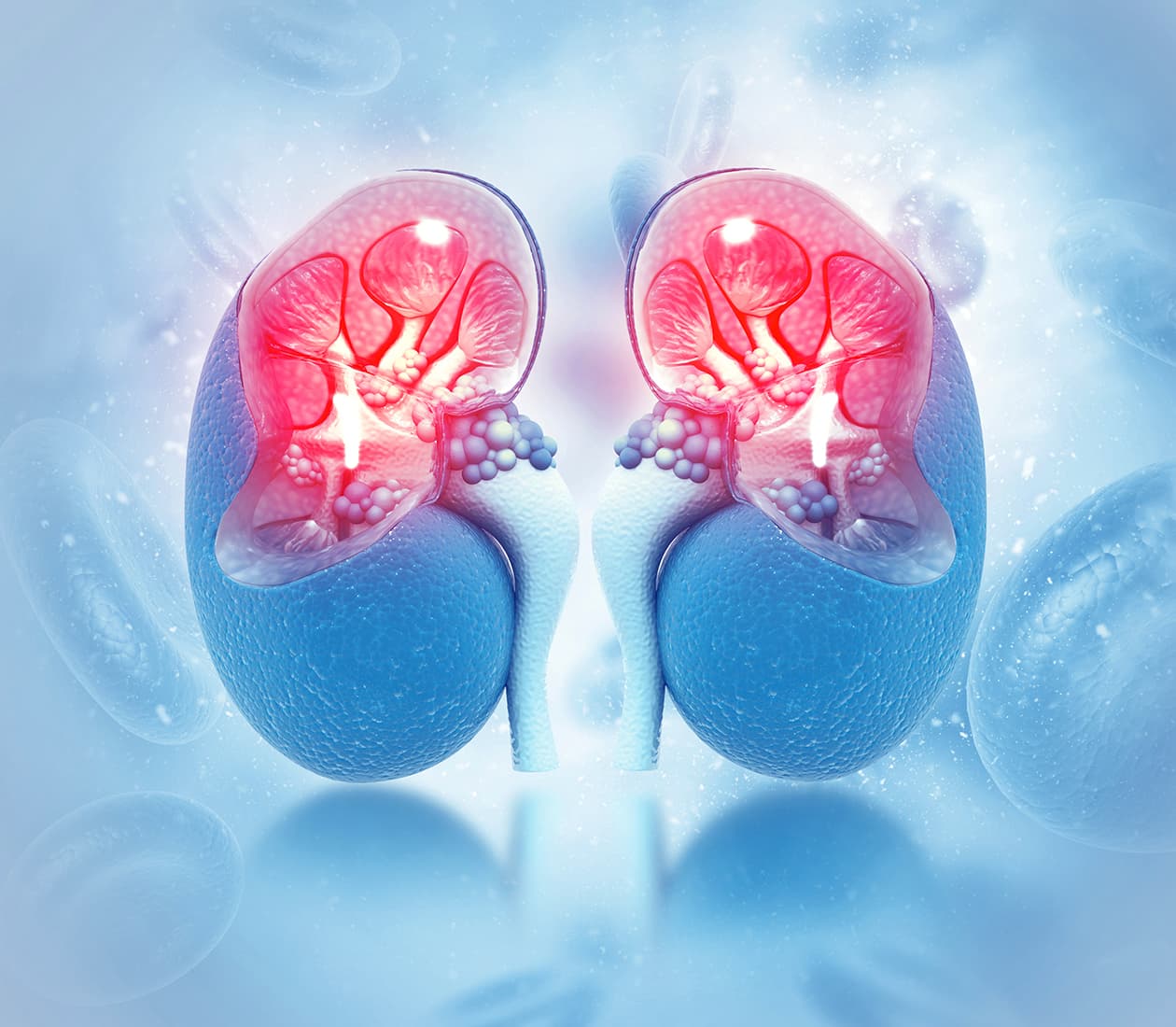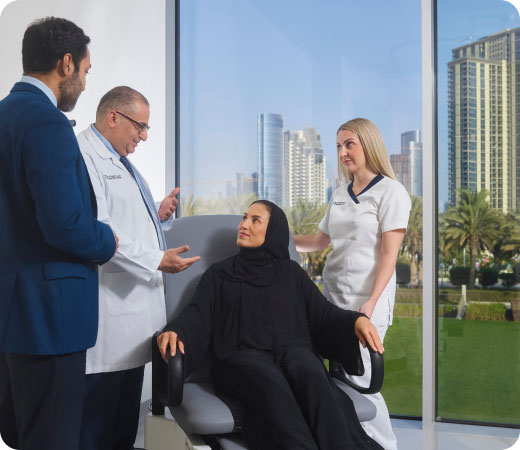
The Kidney Cancer Program provides advanced treatment and innovative procedures for people diagnosed with kidney cancer.
The Kidney Cancer Program’s oncologists, surgeons, radiologists and pathologists offer the best medical and surgical options to every patient to ensure the best possible outcome.
Cleveland Clinic Abu Dhabi takes a multidisciplinary approach to cancer. Our expert team works together and provides specialized care and support for people diagnosed with kidney cancer, close to home. Every patient receives the most compassionate and personalized care possible.

Expertise is important when it comes to cancer care. We work as an extension of the Urological and Kidney Institute at Cleveland Clinic in the US, recognized worldwide for excellence in patient care, teaching and research. Our faculty are members of the Cleveland Clinic network, allowing us to take a collaborative approach to care and offering access to one of the world’s most experienced teams in treating a range of urologic cancers.
Our multidisciplinary approach brings together a team of experts to provide coordinated and exceptional patient care to those diagnosed with kidney cancer. The team meets regularly as a multidisciplinary Tumor Board to discuss each patient and ensure the best treatment options are considered for each individual.

The kidneys are responsible for removing waste products from our blood, controlling our blood pressure, and other functions.
Kidney cancer is the growth of abnormal cells within the kidney tissue which go on to form a tumor. A malignant tumor (Cancer) can spread to other tissues and organs.
The most common type of kidney cancer is renal cell carcinoma, which starts in the cells lining the small tubes (nephrons) within the kidneys. They usually begin as a tumor in one kidney but can affect both.
Other types of kidney cancer include:

Kidney cancer often has no noticeable symptoms in the early stages. As it advances and the tumor gets bigger, symptoms might begin to appear, including:
It is not known what causes kidney cancer. However, several risk factors have been identified, which might increase your chance of developing it. These include:

If your doctor suspects kidney cancer, they will perform a physical exam and discuss your medical history in detail. They may also order certain tests to help diagnose and assess the cancer, including:
Most cancers are then staged before treatment is decided upon, based on its locations, size, whether lymph nodes are affected, how much it has spread and to which organs and tissues.
Surgery is the most common treatment for most kidney cancers. Our surgeons are experts in kidney preservation and minimally invasive surgery. Most of these procedures can be done through small incisions.
New chemotherapy drugs are available to treat kidney cancer, which block blood flow to the tumor and put the cancer into remission. Immunotherapy can sometimes be suitable, which uses the body’s own immune system to fight the tumor.
Your doctor will discuss all treatment options with you in detail, as well as possible side effects, to ensure you make the best decision for you.

There is no way to prevent kidney cancer as the exact cause is not known. However, you can reduce your risk by avoiding some of the risk factors, including smoking and exposure to certain chemicals.
Being aware of the symptoms of kidney cancer means it is likely to be detected at an earlier stage when it is less likely to have spread to other parts of the body. Chances of recovery depend on the stage of the cancer, the type diagnosed and the patient's general state of health.

The Kidney Cancer Program at Cleveland Clinic Abu Dhabi consists of a multidisciplinary team of caregivers, including:

Speak with our Contact Center for assistance
Request an Appointment 800 8 2223 International Patients